Elderly Nutrition: Healthy Eating Advice
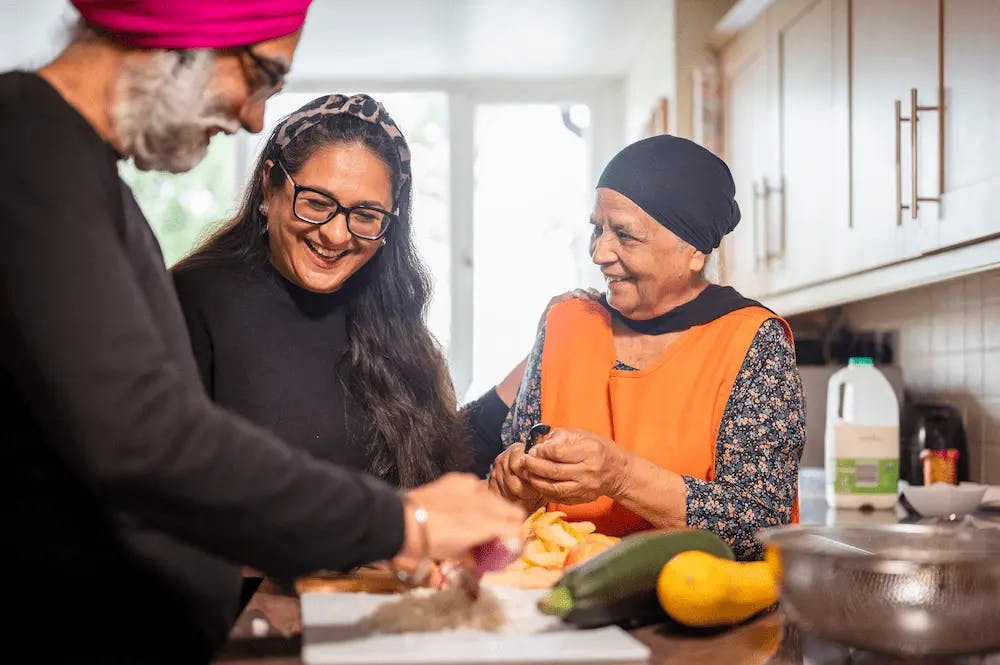
Estimated Reading Time: 15 minutes
Whatever your age, proper nutrition is an essential part of your health and wellbeing. Nutrition is incredibly important as you get older: maintaining a healthy diet can help us cope with illnesses and health problems. Eating well can ward off the effects of things like heart disease, high blood pressure, osteoporosis and more!
The key is to understand what counts as good nutrition and what you need to eat for a balanced diet in later life.
Here, you can find expert-led advice on elderly nutrition - including the best foods to eat as you get older and the risks associated with an unhealthy diet.
Enjoy freshly prepared meals by trained carers
Browse the best home carers in your area.
In this article:
- The importance of good nutrition for elderly people
- How dietary needs change as we age
- What does a healthy diet consist of
- Getting a varied and balanced diet
- Things to limit or avoid
- Risks associated with a poor diet
- Staying hydrated
- Meals offered in care homes
The Importance of Good Nutrition for Elderly People
Regardless of your age, good nutrition is all about eating a healthy and balanced diet because it gives your body the nutrients it needs. Nutrients are substances in food that our bodies need to function and grow. These nutrients include carbohydrates, fats, proteins, vitamins, minerals and water.
Having a good nutritional intake will give you energy throughout the day and help control your weight. It may also help prevent certain conditions like osteoporosis, high blood pressure, heart disease, type 2 diabetes and some types of cancer.
As you age, your body changes, and so does what you need to keep healthy and fit. Though you may require fewer calories, you’ll still need to get enough nutrients, which is why some elderly adults need more protein.
All our care homes offer an amazing selection of meals for your elderly loved ones, so they’ll have plenty to choose from.
Another option is to enjoy some delicious ready meals for the elderly.

How Dietary Needs Change as We Age
Dietary needs change in several ways as we age:
- As we get older, we usually become less active. This causes our metabolism to slow, meaning energy requirements decrease. All of this means that we tend to eat less as we get older
- Medication and certain health conditions can affect nutrition in elderly people
All of this means that following a healthy diet and making every bite count is particularly important for older adults.
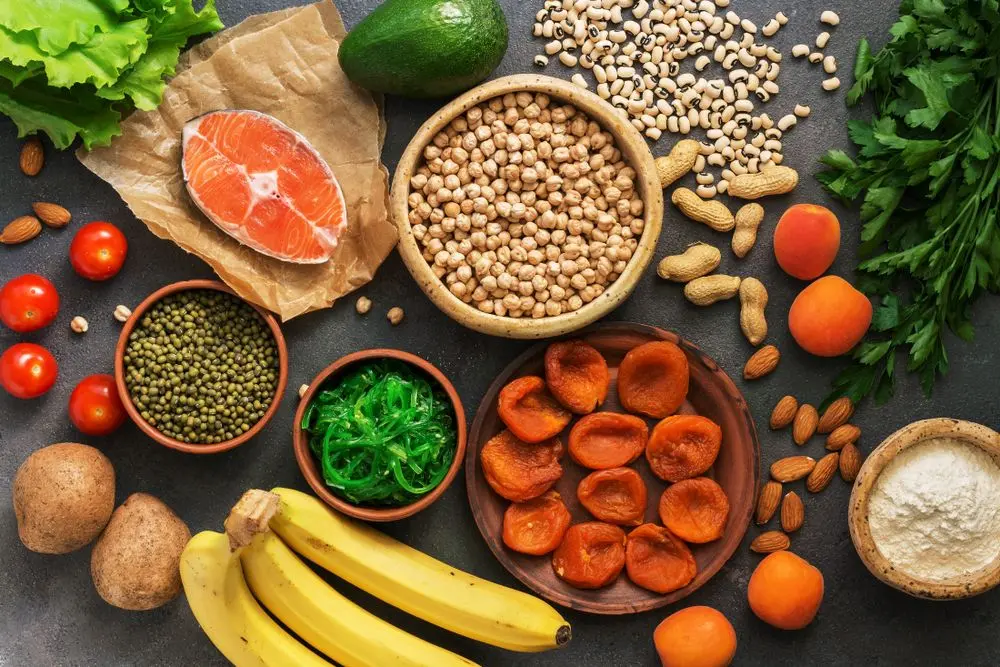
What Does a Healthy Diet Consist Of?
The Eatwell Guide from the NHS shows the different types of foods commonly eaten, along with how much of each should be eaten to achieve a healthy and balanced diet. Because no single food can provide all the nutrients we need, it’s important to include a wide variety of foods in our diet.
The Eatwell guide is split into five main food groups:
- Fruits and vegetables
- Potatoes, bread, rice, pasta and other starchy foods
- Dairy and alternatives
- Fish, beans, pulses, eggs and other proteins
- Oils and spreads
To eat a healthy and balanced diet, you should try to:
- Eat at least five portions of fruit and vegetables every day
- Base meals on higher fibre starchy foods like potatoes, bread, rice or pasta
- Have some dairy or dairy alternatives (such as soya drinks)
- Eat some beans, pulses, fish, eggs, lean meats and other protein
- Eat unsaturated oils and spreads, but only in small amounts
- Drink plenty of fluids (at least six to eight glasses a day)
Types of Food
As you get older, it’s really important that you continue to eat well. Bodily changes result in lower energy and calorie requirements, which is why portion size should be reduced if you aren’t as active as you used to be.
Here, we’ve gone over the most important food groups, the benefits of each and what foods they contain.
Fruits and vegetables
Eating five or more portions of fruits and vegetables every day will go a long way to preventing heart disease and some forms of cancer. This is because fruits and vegetables are packed with vitamins, minerals and dietary fibre while also being lowing in fat.
There’s plenty to choose from here, including fresh, frozen, dried and tinned options. We’d recommend choosing canned fruit in juice over fruit submerged in syrup. Similarly, pick vegetables in water, rather than those in brine.
An adult portion is around 80 grams. This portion could be:
- One medium-sized piece of fruit (an apple, orange, banana or pear)
- Two smaller pieces of fruit (such as kiwis, satsumas or plums)
- A large slice of pineapple or melon
- One tablespoon of dried fruit
- Three heaped tablespoons of fresh or frozen vegetables
- A small glass (around 150ml) of fresh fruit juice or a smoothie
It’s recommended that you limit dried fruit and juices to meal times, as the higher sugar content can be damaging to your teeth if consumed between meals.
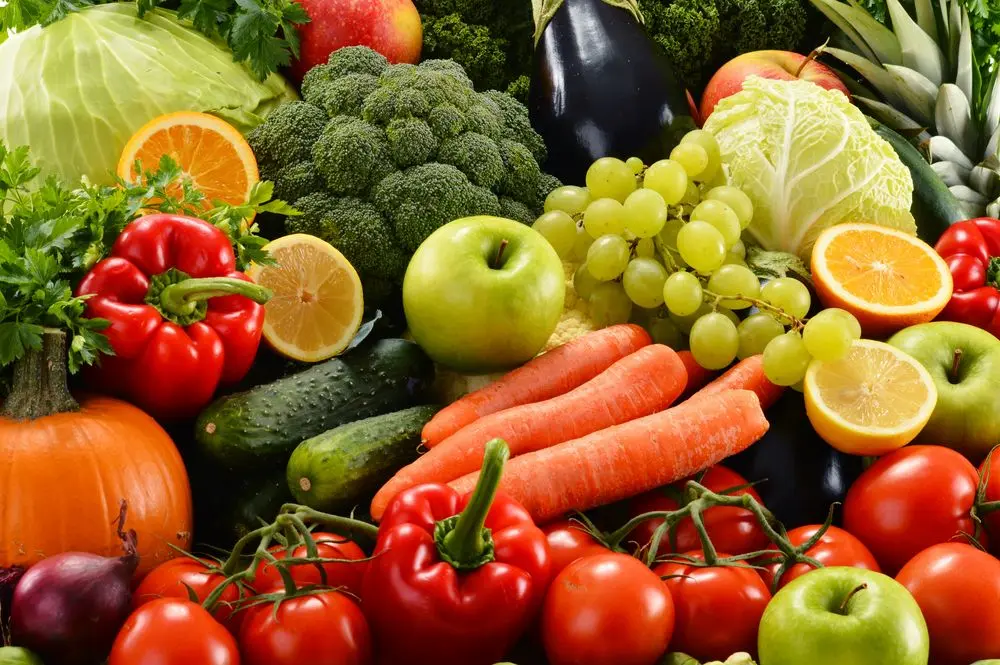
Potatoes, bread, rice, pasta etc
You should eat plenty of foods that are rich in starch and fibre. Starchy foods like bread, rice, potatoes and pasta are all good sources of energy, fibre and vitamins B. These foods can also form the basis of some delicious meals!
The healthiest option is to pick higher-fibre, wholegrain varieties such as whole wheat pasta, brown rice or potatoes with the skins left on.
Breakfast cereals will leave you feeling prepared for the day, thanks to being full of vitamins, minerals and fibre. Again, wholegrain breakfast cereals and whole oats are the healthier breakfast alternatives.
The fibre found in these types of food will help to prevent constipation and reduce the risk of intestinal disorders as a result.
Dairy and alternatives
Low fat milk and other dairy products like yoghurt and cheese are all important sources of calcium, vitamins A, D and B12, along with protein and fat. Calcium is especially important for the elderly as it helps with maintaining bone health while retaining muscle function. Vitamin D is needed to help absorb calcium so it plays a big part in strengthening bones.
Lower-fat and fat free dairy products like skimmed milk, cottage cheese and half-fat cheddars will provide the best result. When it comes to dairy alternatives (such as almond or soy milk), unsweetened and calcium-fortified varieties are the healthiest.
Fish, beans, pulses, eggs and other proteins
Meat is one of the best sources of protein, vitamin B12 and iron. Having an iron-rich diet will help prevent iron deficiency anaemia. With that being said, we’d recommend avoiding processed meats as these tend to be much higher in fat and salt while also containing less iron.
If you aren’t eating meat then beans, peas and lentils are all great alternatives that are naturally low in fat while being high in fibre, protein, vitamins and minerals. There are plenty of other vegetable-based sources of protein and meat substitutes that are now widely available in most major supermarkets.
Eggs are another high-protein food. Their versatility makes them especially appealing, as they can be scrambled, boiled, poached or made into an omelette.
Adults, including the elderly, are recommended to eat two portions of fish a week, one of which should be oily. Tinned fish contains lots of omega-3 fatty acids which are good for the heart.
Oils and spreads
As we mentioned, eating fresh and tinned oily fish is an important part of nutrition for older people. Small amounts of vitamin D are naturally found in fish like salmon, mackerel, trout, kippers and sardines. Vitamin D is also added to certain low-fat spreads and similar food products such as margarine, soya and powdered milk.
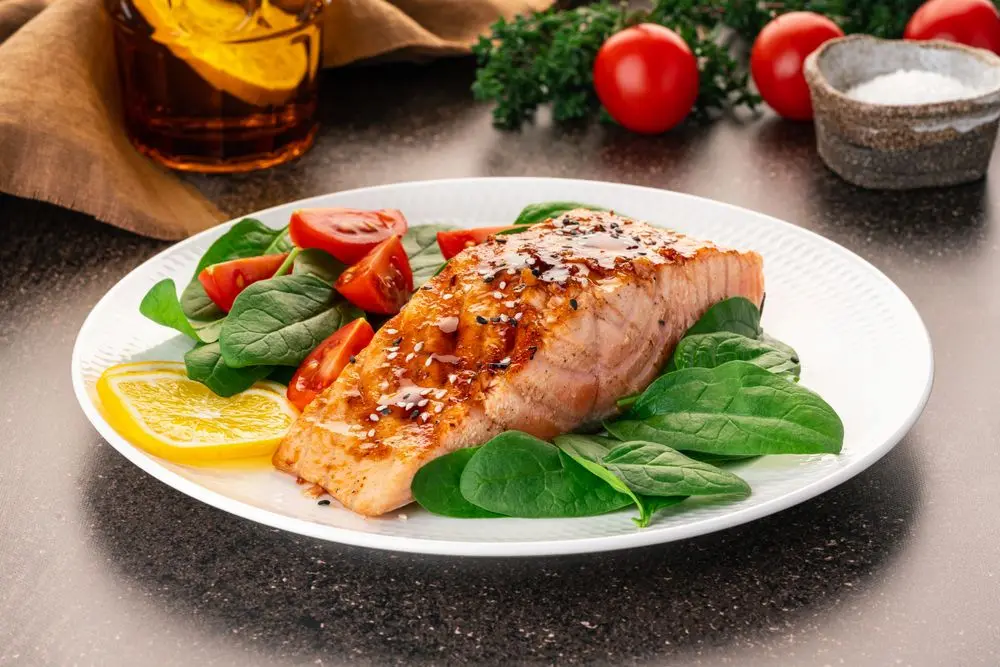
We can help you find the best home carers who will prepare and cook you delicious meals. Request a free list of home care agencies, and our care experts will match you with suitable carers with availability in your local area.
Macronutrients
Macronutrients are the nutrients that we need in larger quantities to provide us with enough energy. The most common macronutrients that older adults will benefit from are carbohydrates, proteins and fats.
Carbohydrates
As your body’s main source of energy, carbohydrates are vital to your health for several reasons. They’re also useful for controlling weight and protecting against disease. Evidence shows that whole grains and dietary fibre from carbohydrate-rich foods help lower your risk of heart disease and stroke.
It’s recommended that carbohydrates make up between 45% and 65% of total daily calories. If you eat 2,000 calories a day, then around 900 to 1,300 of these calories should be carbs.
The carbohydrates that tend to spring to mind are foods like pasta, rice, noodles and bread, but other common foods also include carbs like dairy products, beans, fruits and grains.
Eating too many carbs though can quickly become unhealthy. Here’s what you should focus on when fitting healthy carbohydrates into a balanced diet:
Fibre-rich fruits and vegetables - Choose whole fresh, frozen and canned fruits or vegetables that don’t have any added sugar
Whole grains - These are better sources of carbohydrates than refined grains of fibre and other important nutrients. This is because refined grains go through a process that removes some of these nutrients and fibre
Low-fat dairy products - Milk, cheese, yoghurt and other dairy products are great sources of calcium, protein, vitamin D, potassium and other vitamins and minerals
Beans, peas and lentils - These are among the healthiest and most nutritious foods. Beans, peas and lentils are all typically low in fat but high in potassium, iron and magnesium
Proteins
One of the most important macronutrients are proteins. Getting plenty of protein is especially important for older adults as it’ll help you maintain and even add muscle. This is crucial, as according to Marta Lonnie from the University of Aberdeen, we lose 30 to 50% of our muscle mass between the ages of 40 and 80. Getting enough protein can also help reduce the risk of falling and similar accidents.
According to a study in the Journal of Nutrition, Health & Ageing, almost half of older adults get less than the amount of protein recommended by the National Academy of Medicine. This suggested allowance is 0.36 grams per pound of body weight on a daily basis (or 54 grams for a 150-pound person).
For context, you can get around 50 grams of protein from 5.5 ounces of Greek yoghurt, 3 ounces of chicken breast and a half-cup of white beans.
Popular sources of protein include:
- Meat
- Poultry
- Seafood
- Dairy (such as eggs)
- Beans
- Lentils
- Nuts
- Seeds
- Soy
- Whole grains
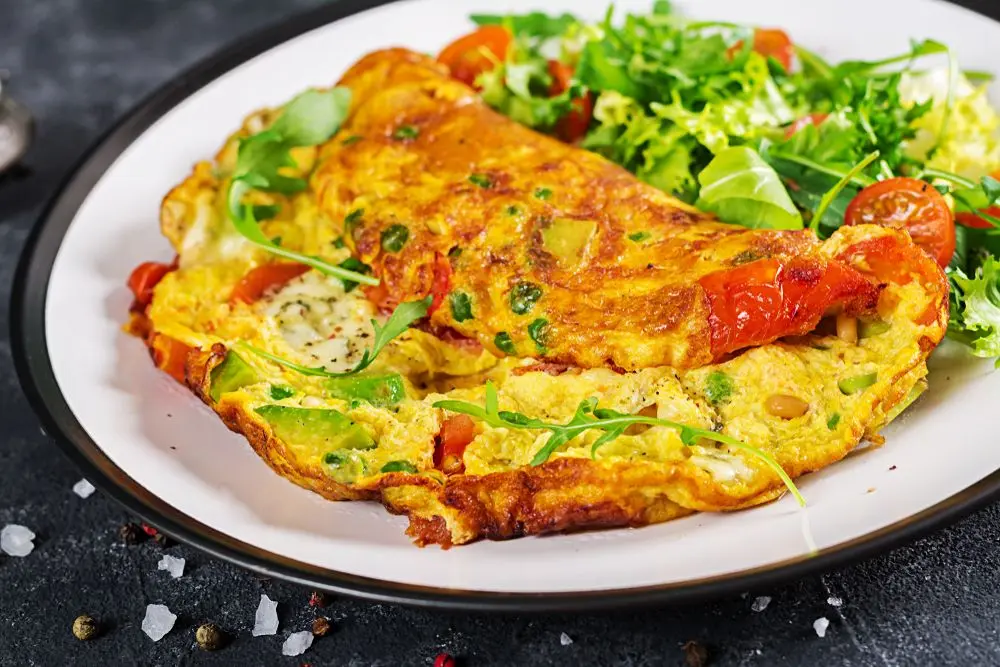
Fats
You should avoid trans fat as much as possible (these raise ‘bad cholesterol’ while lowering ‘good cholesterol’). Saturated fat is a slightly healthier option but should still be limited to less than 10% of your total daily calorie intake. Trans fats and saturated fats both increase the risk of heart disease while offering limited benefits.
Your daily fat intake should mainly come from heart-healthy fats like polyunsaturated and monounsaturated fats. These are found in oils, fish and nuts.
Speak to a doctor before making any drastic dietary changes.
Micronutrients
Meanwhile, micronutrients are mainly vitamins and minerals. These are just as important as macronutrients but should be consumed in very small amounts.
The following vitamins and minerals become increasingly important as you get older:
Vitamins
There are a number of essential vitamins that your body needs. Each of these has a different job to keep you functioning properly. Here are three of the most important vitamins for older adults to maintain a healthy diet:
1. Vitamin A - This has several important functions, such as strengthening immunity against infections, improving vision in dim light and keeping the skin healthy. Good sources of vitamin A include cheese, eggs, oily fish and milk. You shouldn’t have more than 1.5mg of vitamin A every day, as this might increase the risk of bone fracture. Because liver is particularly rich in vitamin A, we’d recommend avoiding eating products containing this more than once a week
2. Vitamin C - Foods and drinks containing lots of vitamin C will help your body absorb iron. Fruits - particularly citrus fruits - green vegetables, peppers, tomatoes and potatoes are all good sources of vitamin C. One idea is to have some fruit or vegetables with an iron-rich meal
3. Vitamin D - This vitamin is vital for everyone, as it helps develop and maintain healthy bones, teeth and muscles. For older adults, vitamin D with added calcium may be recommended by healthcare staff to further protect bone health and guard against osteoporosis. We get vitamin D by spending time in the sunlight and by eating or drinking fatty fish, egg yolks, red meat and milk or juices fortified with vitamin D
Quite a lot of older adults will need more vitamin D than you can expect to get from food and sunlight alone, particularly during the winter months. It makes sense then, to take a daily supplement containing 10 micrograms of vitamin D during months with limited sunlight. This is especially true if you or your loved one are indoors for long periods as your skin won’t be exposed to enough sunlight to make vitamin D.
Minerals
Here are the two minerals that are most important for elderly nutrition:
1. Calcium - Osteoporosis is a major issue amongst older people, particularly women. This is where bone density reduces which increases the risk of fractures. Getting plenty of calcium in your diet is essential when fighting osteoporosis, with good sources of calcium including dairy products like milk, cheese and yoghurts. Be sure to choose low-fat varieties where possible. Aside from dairy, dark green leafy vegetables, soya beans and tofu all contain calcium as well
2. Iron - You or your elderly loved one should eat lots of iron-rich foods to keep up your body’s store of iron. The best source of iron is red meat but it can also be found in pulses (like peas, beans and lentils), oily fish, eggs, bread, green vegetables and breakfast cereals that have had vitamins added
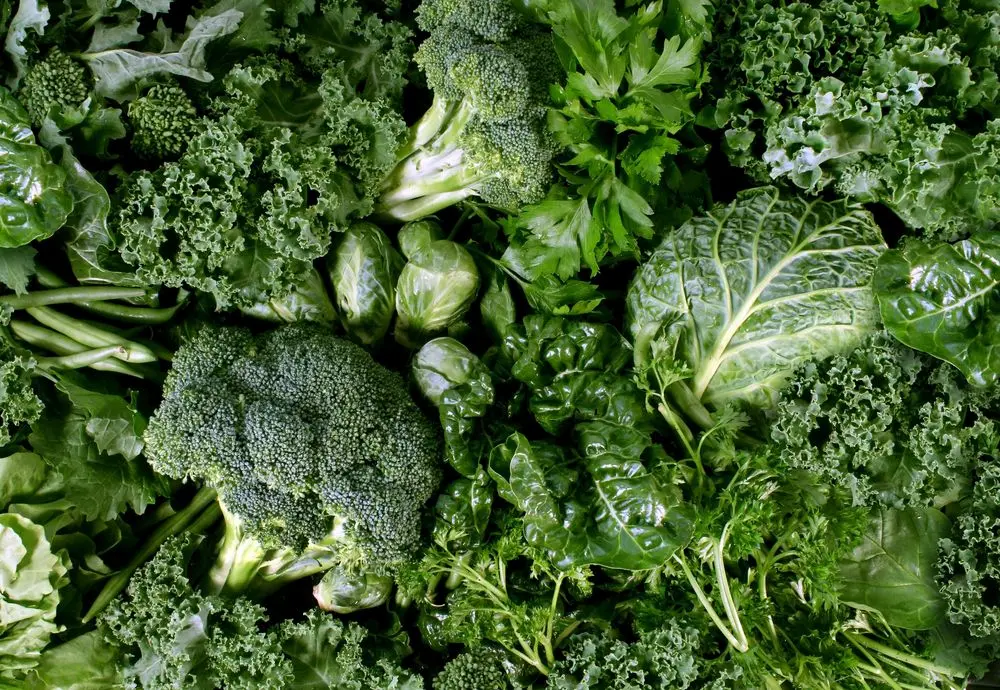
Getting a Varied and Balanced Diet
A well-balanced diet contains lots of natural foods, including fruits, vegetables, whole grain products, dairy and protein. You should aim to eat a variety of these foods, with the protein predominantly coming from poultry and lean meat (unless you don’t eat meat of course). Similarly, dairy products should be low fat.
There are also certain foods you should try to avoid, such as overly processed foods and foods that are high in salt (more on this in the next section). Monitoring your fat and cholesterol intake will help with having a well-balanced diet that’s packed full of good nutrition (this is particularly important if you’ve had issues with high cholesterol in the past).
Though only essential in small amounts, micronutrients also play a crucial role by providing you with numerous essential vitamins and minerals.
As you get older, it’s perfectly natural for you to become less active. In turn, this will likely lead to you eating less as your body adjusts your overall food intake.
If you find it difficult to tolerate the meals you used to eat, then consider having smaller but more regular meals with nutritious snacks in between.
As you get older, eating regularly is really important - at least three times a day is preferable. You probably aren’t always going to feel like cooking, which is where tinned, chilled and frozen meals can come in handy.
Things to Limit or Avoid
Here are three things you should be eating and drinking less of as you get older. Having less of these will help you avoid any health issues:
1. Salt
You should aim to keep your salt intake to less than 6 grams per day (or around 2.4 grams of sodium). Be sure to check the information on labels when buying processed foods as these are often high in salt. Consider swapping salt out with pepper and other delicious herbs or spices to add some more flavour to your favourite dishes.
2. Sugar
The World Health Organisation’s new recommendation is that sugar should account for 10% or less of your daily energy intake. They’ve also said that reducing your daily sugar intake to below 5% (around 25 grams) could lead to further health benefits.
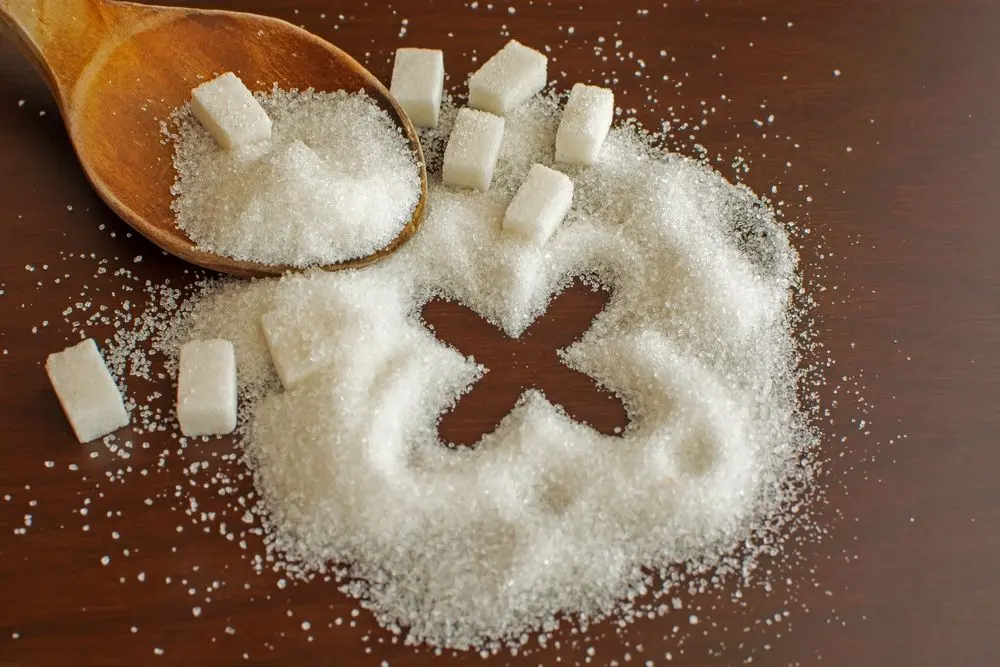
3. Alcohol
While plenty of people enjoy drinking alcohol socially, bear in mind that when drunk in large quantities, alcohol can lead to weight gain. As we get older, we tend to have less body weight than younger adults, which causes alcohol to be more concentrated in the blood (meaning it’ll take less to have an effect). This in turn means that alcohol can more easily impair judgement, increasing the risk of falling.
Risks Associated With a Poor Diet
In the short term, poor nutrition and diet can contribute towards stress and tiredness. Having a poor diet can also lead to more long-term health problems developing like:
- Obesity
- Tooth decay
- High blood pressure
- High cholesterol
- Heart disease and stroke
- Type 2 diabetes
- Osteoporosis
- Some forms of cancer
- Depression
- Eating disorders
- Vitamin D deficiency
- Anemia
- Less cognitive ability
Staying Hydrated
Along with having a balanced diet, it’s also really important to make sure you or your loved one is drinking enough so you stay hydrated. The human body needs plenty of fluids to work properly!
You should aim to drink about six to eight glasses of water (or other fluids) every day to ward off dehydration. When the weather is warm or you’re more active than normal then you’ll likely need more than this standard amount.
Also bear in mind that drinks containing lots of caffeine - like coffee or a strong tea - will act as mild diuretics, meaning they make the body produce more urine. While these sorts of drinks are fine, you’ll want to make sure that you’re also drinking plenty of fluids that don’t contain caffeine, so as to avoid dehydration.
Keep an eye out for the following signs of dehydration:
- Urine has a dark colour
- Headaches
- Confusion
- Lack of concentration
As you age, these dehydration symptoms could also be signs of other issues. Be sure to check with your GP if you’re concerned about any of these symptoms.
Meals Offered in Care Homes
Apetito provide food for care homes. Here’s a sample care home menu to give you an idea of what’s served.
Here’s some of the food served by Woodchurch House Assisted Living Facility in Woodchurch.
You can also check out additional sample menus through Sanctuary Care.
We’re on a mission to support individuals and their loved ones throughout each stage of their later living journey. For more information, check out everything Lottie has to offer.



